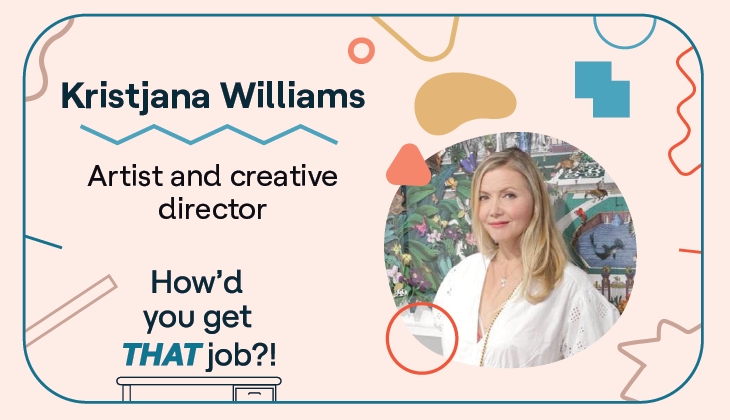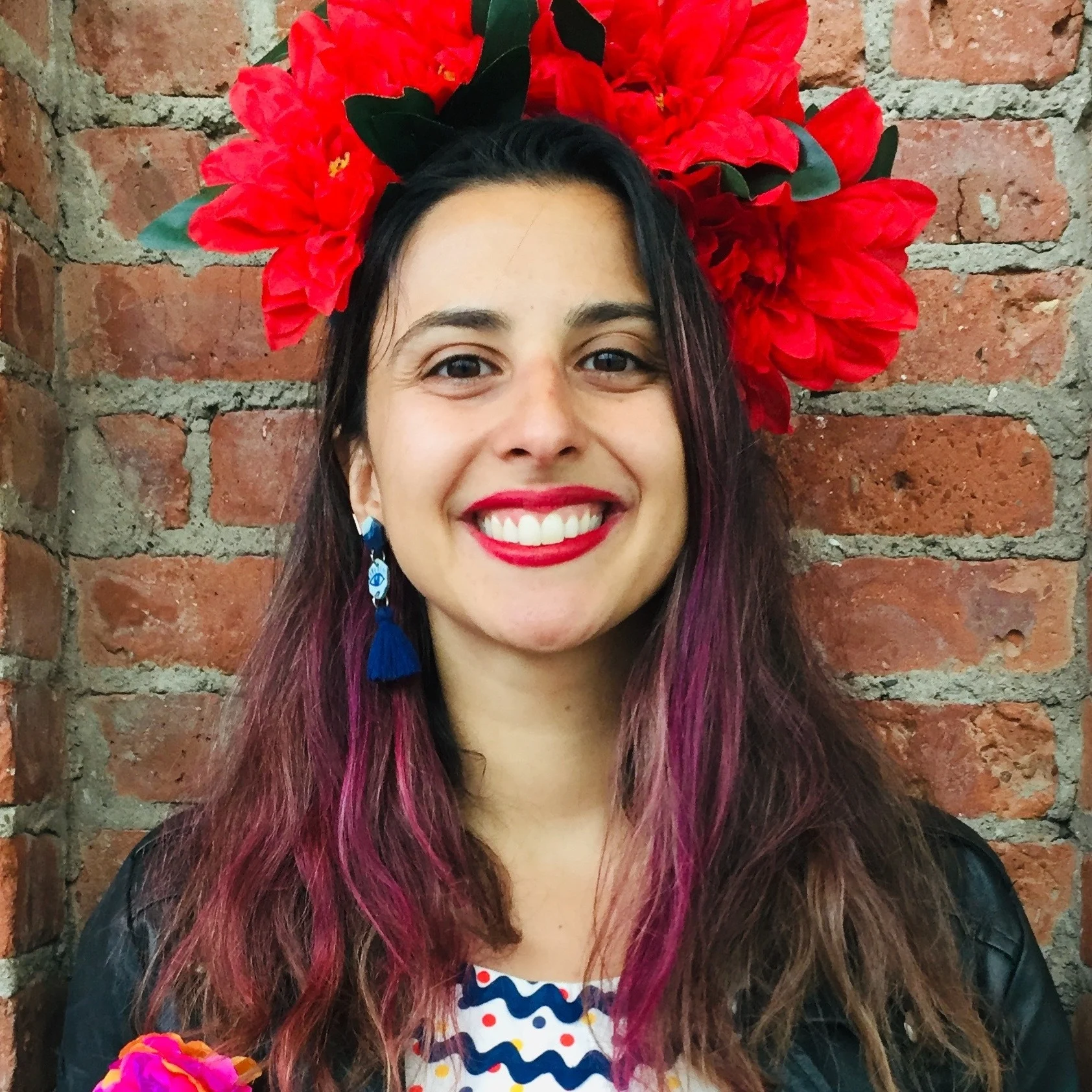Stay in the know
All our latest podcasts delivered right to your inbox.
Kristjana Williams is a London-based Icelandic artist with dyslexia. She wasn’t diagnosed until she was 25 and attending Central Saint Martins, an art school with many students who learn and think differently. Now, she’s a renowned collage artist with her own studio.
Growing up in Iceland with undiagnosed dyslexia was frustrating for Kristjana. She would try so hard to accomplish her work, but she just couldn’t quite get it without the support that she needed. Today, she knows that her brain works differently, and she leans into her strengths. It’s why her work is so creative and comes together naturally.
Listen to this week’s episode of How’d You Get THAT Job?! to hear more about how Kristjana’s dyslexia affects her memory, and how it led her to the collage art medium.
Related resources
Undiagnosed dyslexia, and low self-esteem: Becoming a fashion designer, another How’d You Get THAT Job?! episode
Episode transcript
Kristjana: I remember telling my parents, and I remember my dad saying, "Oh, yeah, I always wondered why you couldn't spell your own name." And I was like, oof. I definitely just know that my brain works differently. And I think that it just allows me to put things together. It just happens magnetically. It's very natural.
Eleni: From the Understood Podcast Network, this is "How'd You Get THAT Job?," a podcast that explores the unique and often unexpected career paths of people with learning and thinking differences. My name is Eleni Matheou, and I'm a user researcher here at Understood. That means I spend a lot of time thinking about how we find jobs we love that reflect how we learn and who we are. I'll be your host.
Kristjana Williams is an Icelandic artist based in London. And she has dyslexia. She studied at Central Saint Martins College and Art School, where she found a lot of others who thought differently like her. She wasn't diagnosed with dyslexia until she was 25 years old. Now she's part of the Dyslexic Design art collective and has been running her own studio since 2012. Hello. Welcome.
Kristjana: Thank you so much for having me.
Eleni: Well, I thought a good place to start is your studio. So tell me about the studio. What do you all do there?
Kristjana: We're a studio. Kristjana Williams Studio. At the very heart of it is the fine art. And like the creations, there's always, like, a few collections that I will make personally each year. And then another half that the studio is more commercial projects that are brand related, and they also have to work really well together because anybody who's buying the art needs to be happy with the people that I'm working with. So that's like the two main sides of it.
And I work in collage, a lot of digital art. So kind of XR as well as the physical 3D pieces, as well as limited-edition prints. It's interesting actually, because we started kind of on the kitchen table and as you kind of grow, probably one of the hardest bits is to get somebody else in to work with you. So it kind of slowly grew from that, from the kitchen table into a studio. From two people to four people to six, and I think we're about 10 at the moment.
Eleni: Do you want to talk a little bit about your chosen medium and perhaps like how you would describe your work?
Kristjana: So my role is artist, creative director. So in the very beginning, I had some — because of the nature of my work, so much of it is about research and working with all the Victorian engravings. So you might have to find three older telescopes to be able to make a new instrument. Or often I would use different scientific material to kind of create buildings and architecture.
And as a young person, I used to draw things in a really intense way. And when I was at Central Saint Martins, I did this internship with a woman that had this fashion label, and I started drawing patterns for her. And she was actually the one that introduced me to silkscreen printing and Victorian engravings. And the Victorian engravings were used a lot in the fashion industry in London, because you would just have to create these huge giant clips. If we're really quick turnaround for the next season, for the next season. I did like three or four seasons with her. And that just gave me the idea of working big and working on scale. And I was always very interested in kind of animation and the digital side of things.
Eleni: When did you first start doing collage and what drew you to it? What do you like about it?
Kristjana: As a kid was just constant drawing, painting, and all of it. So it's interesting. When I really look back, I can see that the work is — has that like thread in it. Even when I was doing like the linocutting and stuff and I started screen printing, which I really loved, but I was using the screens as a stamp, and again, like the complete thread in that.
So the collage actually came much later. It's just kind of realizing how to work digitally, and that was through the fashion of having to have to create those big fabrics very quickly.
Eleni: So you mentioned you have dyslexia. Is there any link between your attraction to collage and your artistic practice to the way that your brain works and your dyslexia?
Kristjana: Being dyslexic in school in Iceland, of course, because I'm in that age group, we had no idea. It was just like what probably every other dyslexic experiences: that really frustrating, knowing that you can do it, but you still you can't quite get it out there. And some things you're good at mostly, like the variation in dyslexia being so vast. So I think definitely my memory was affected in a really specific way where, you know, you remember, but then you just — you can't get to your short-term memory quick enough.
So I feel like when I finally went to Central Saint Martins, which wasn't until I was 25, at Central Saint Martins, they just immediately went right for you to get you tested. And I was like, oh. And I didn't think much about it, because you do learn how to navigate it. And I remember telling my parents. And I remember my dad saying, "Oh yeah. I always wondered why you couldn't spell your own name."
And I was like, oof. Being so frustrated. But they just, yeah, I think I definitely just know that my brain works differently. And because of the way that I think, that it just allows me to put things together. It just happens magnetically. It's very natural.
Eleni: And you mentioned one of the challenges that you had when you were first working with the team was just being able to communicate what you were thinking over the years and like having a studio and working with a team. Like how have you learned to be able to communicate what's in your brain or externalize what's going on in your head?
Kristjana: I think definitely when I look at the beginning, again, I just was just frustrated because something was so clear in my head, but I just couldn't communicate it easily. So that was definitely a journey, just a journey that you just by hammering, just doing it gets easier and just — but if you're around nice enough people that understand you and see what you can do, you can just, you just have to have faith in humanity.
And I feel like with the girls in my studio now, they know me. They know now what I will remember, what I won't remember. And they know to remind me of certain things. And they know that I'm going to go to the airport without my passport, like for the 30th time. And they're just all kind of floating around and they can work together. And actually, as I'm getting older, I feel like I'm using, like — and I'm just getting more and more better at these things.
Eleni: You kind of talked about when your team first came onboard, you talked to them about it. Did you mean that you talked to them specifically about having dyslexia and how that might impact your day to day? Or what did you mean when you said that?
Kristjana: Not in the beginning. I think people definitely just experienced me as this person that would flip it around quite a lot. But now as I've got older and like my team were all more established, I feel like in the past four or five years, like I'm just always very vocal about it. I say, "I can't really hear. Would you say these letters out loud so I can picture them?" And like when people are talking to me really fast on the phone, like breaking down something that they're spelling, and I just always make a point of talking about it. Or it's just also with certain disruption in the studio. In fact, it took me a long time to learn that I could ask for that break.
Eleni: Do you think that there are any ways that your dyslexia influences how you manage your team and manage your studio, like beyond just creating the work itself?
Kristjana: I'd like to think so. It makes you have more kind of empathy with so many creative people with neurodiversity. You feel really comfortable around them. Also, like you realize when you look back with your friends that you automatically grow with people that are a little bit similar to you.
Eleni: What would you say that you've learned about yourself or your dyslexia over the years? If you could go back and talk to your 20- or 30-year-old self, like what would you say?
Kristjana: I think I'd mostly like to speak to my 10-year-old self. I'd just kind of give her a pat on the back to say, you know, you're not crazy. Because it was so confusing. I think when I was in my 20s, I think I just never associated dyslexia with how it affects your memory. So I still thought that was just me being me.
And it was working with some dyslexic art exhibitions with Jim Rokos, my friend that was also in Central Saint Martins. Um, I completely forgot what I was going to say.
Eleni: The funny thing is that you were talking about memory.
Kristjana: Oh, yeah. Oh, yes. OK. So. Yes. So with my memory is all of my thoughts. They're just like floating on the top of the ocean. And even though I just heard something, the likelihood that I'll be able to get it? Quite slim. And I'm just — I think I've lived with fear of just feeling quite stupid. It really makes you doubt yourself.
And I think when I got diagnosed, it's actually like at 25, 26, because you know how hectic you are just in that time. And I was always this person that was doing 100 things at the same time. And yes, so I think I didn't actually start to read about that until my 40s. Looking back, I feel like I would have educated myself a bit about the diversity of dyslexia.
Eleni: Does your dyslexia manifest differently across languages?
Kristjana: No, it's interesting. Icelandic is quite literal, but it's still quite wordy. So expressing myself in English, I find that really easy. Icelandic is really similar, because in Icelandic it's just — it's still the letters. It's just, it's hearing them and just the hesitation with the writing, even though it's just fantastic on computers and spellcheck and I, you know, compose things really quickly now. Though I think it's quite similar.
Eleni: I have heard that, yeah, but I just wondered what that experience was like for you. Do you want to give us an example of a project that you're working on right now, and perhaps a little bit of your artistic process in that?
Kristjana: I have 20 projects going on at the moment. So the Victoria and Albert Museum is one of my favorite places in the world, and it's such a big contrast with Iceland and growing up there. So it's a bit like going to these old English places that are just like — you find you're so curious in that one. So I've been working with them since 2011.
And I did this installation in the British Galleries where you could sit down in the sofa. And I'd do this really intricate like junker, like collages, and you could do your own collage. So we had four corners of that. That was really, really fun, to always feel very deep that everybody has that creativity inside of them, but we just kind of leave it at the door. And that's why collage is so amazing.
Like I've done so many like live collage workshops or digital ones, and it's just always brilliant and so different what people come up with. And like when I did those four pieces, everybody was like, oh, do you really want to open up your work? Ot do you want everybody just to be able to go into your work and just — nobody wants to do what you do. Everybody wants to do their own thing. So I continue to work with them throughout the years and with about —.
Eleni: Over a decade. It's pretty amazing.
Kristjana: Yes, I did the — they did a huge exhibition about Alice in Wonderland: Curiouser and Curiouser. And I was commissioned to do the book for that. And we did a VR experience within the exhibition. So like working digitally and being able to kind of break everything part and doing the paper theaters was just amazing.
Eleni: That's so exciting. Thank you, Kristjana, for joining me from London.
Kristjana: Thanks for having me.
Eleni: You've been listening to "How'd You Get THAT Job?!" from the Understood Podcast Network. The show is for you. So we want to make sure you're getting what you need. Email us at thatjob@understood.org with your thoughts about the show. Or maybe you'd like to tell us how you got THAT job. We'd love to hear from you.
If you want to learn more about the topics we covered today, check out the show notes for this episode. We include more resources as well as links to anything we mentioned in the episode. Also, one of our goals at Understood is to help change the workplace so everyone can thrive. Check out what we're up to at u.org/workplace. That's the letter U dot org slash workplace.
Understood.org is a resource dedicated to help people who learn and think differently discover their potential and thrive. Learn more at understood.org/mission.
"How'd You Get THAT Job?!" is produced by Margie DeSantis and edited by Mary Matthis. Briana Berry is our production director. Our theme music was written by Justin D. Wright, who also mixes the show. For the Understood Podcast Network, Laura Key is our editorial director, Scott Cocchiere is our creative director, and Seth Melnick is our executive producer. And I'm your host, Eleni Matheou. Thank you for listening.
Host
Eleni Matheou
leads user research for Understood. She helps Understood to center its work on the lived experiences and voices of people who learn and think differently.
Latest episodes
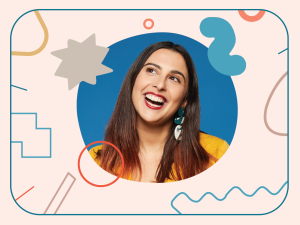
June 28, 2023
In the series finale of How’d You Get THAT Job?!, host Eleni Matheou unpacks what we’ve learned about how people thrive at work.

June 14, 2023
Nathan Friedman is the co-president and chief marketing officer of Understood.org. And he has dyslexia and ADHD. Learn how he got into the C-suite.
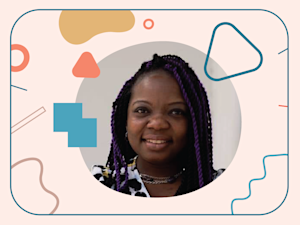
May 31, 2023
Dr. Loucresie Rupert is a child, adolescent, and adult psychiatrist with ADHD. She didn’t have an easy time getting her diagnosis as a Black woman.

May 3, 2023
Aideé Chávez Frescas has ADHD, and is a senior social media manager at Understood. Her posts help end stigma and show others they’re not alone.
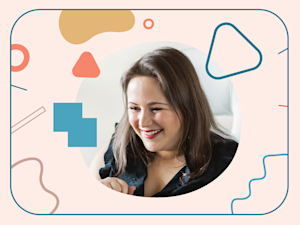
April 19, 2023
Alex Gilbert is a career coach with ADHD and dyslexia. After working in leadership development for years, she started her own coaching business.
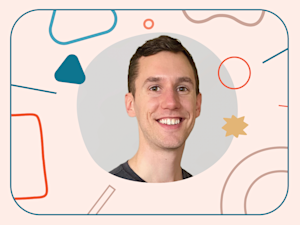
April 5, 2023
Dan Reis was diagnosed with ADHD during the pandemic. Now, he’s made it his mission to explore coping strategies to help him get his work done.
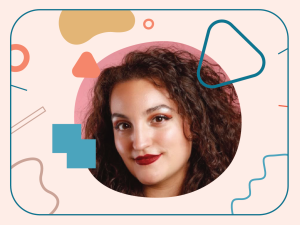
March 22, 2023
Rachel Basoco’s two jobs keep things interesting for her ADHD. She works full time at Fidelity, and part time at 11:11 Media, Paris Hilton’s company.
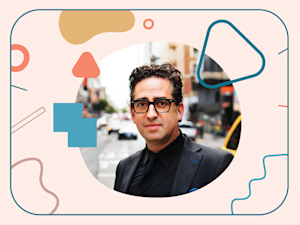
March 8, 2023
Gil Gershoni says that everything he does is dyslexic. He founded the branding firm Gershoni Creative and hosts the Dyslexic Design Thinking podcast.
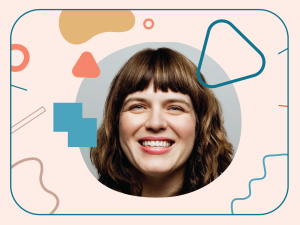
February 22, 2023
Claire Odom is a psychotherapist with ADHD. She’s also a disability inclusion consultant who has advice on navigating the workplace.
